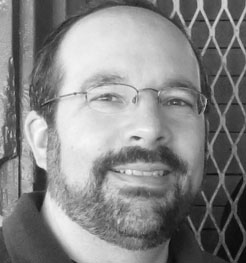We are delighted to announce the schedule for our Spring 2013 speaker series, kindly sponsored by the GC Digital Initiatives Program.
All events are free and open to the public, and take place at the CUNY Graduate Center.
Thursday February 28: Mary Flanagan (Dartmouth College)
“Never Mind the Body, Here’s a Gamepad? Considering Embodiment in The Age of Play”
Sponsored by the English Student Association, Doctoral Students’ Council, GC Digital Initiatives, and CUNY Digital Humanities Initiative
Time & Place: 4:00pm-5:30pm, Room C204-205, CUNY Graduate Center
Opening keynote for “Minding the Body: Dualism and its Discontents,” an interdisciplinary conference hosted by the English Student Association at CUNY Graduate Center.
This keynote presentation explores a pervasive onscreen/offscreen split of identification and the body in what we could now call The Age of Play. Citing examples from artists’ work and popular culture, with a focus on games, Flanagan leads the audience on an investigation of current trends that are in diametrical opposition: on the one hand, a hunger for embodied, resonant experience; and on the other, a desire for control for the body, a recurring motif in fields from psychology to public health, manifesting in plastic surgery and digital manipulation of the body.
Mary Flanagan is Sherman Fairchild Distinguished Professor in Digital Humanities at Dartmouth College and Director of Tiltfactor Laboratory. She writes at Grand Text Auto; see also her work on Values at Play.
Wednesday March 20: Anne Balsamo (The New School)
“The Cultural Work of Interactive Memorials: Lessons from the AIDS Memorial Quilt Digital Experience Project”
Time & Place: 6:30pm-8:30pm, CUNY Graduate Center, Room 3212
Anne Balsamo is Dean of the School of Media Studies and Professor of Media Studies at The New School for Public Engagement. She is a national leader in media studies, scholar and media-maker whose work links cultural studies, digital humanities, and interactive media. See more about her work at her site, Designing Culture.
Thursday April 4: Kari Kraus (University of Maryland)
“Experiments in Design Fiction”
Time & Place: 6:30pm-8:30pm, CUNY Graduate Center, Room 6421
Kari Kraus is an assistant professor in the College of Information Studies and the Department of English at the University of Maryland. Her research and teaching interests focus on new media and the digital humanities, textual scholarship and print culture, digital preservation, transmedia storytelling, and game studies.
Wednesday April 10: Rita Raley (University of California, Santa Barbara)
“Towards a Critical Digital Humanities”
Time & Place: 6:30pm-8:30pm, CUNY Graduate Center, Room 6417
This event has been cancelled due to a scheduling conflict.
Wednesday April 17: Arienne Dwyer (University of Kansas)
“Using Languages as Historical Sources”
Time & Place: 6:30pm-8:30pm, CUNY Graduate Center, Room 3212
Arienne M. Dwyer is a Professor of Linguistic Anthropology, affiliated with Linguistics and Indigenous Nations Studies, and Co-Director of the Institute for Digital Research in the Humanities at the University of Kansas. Her work focuses on language change; she has conducted 20 years of local research with individuals and communities in Inner and Central Asia and has directed a number of collaborative documentation and archiving projects.
Thursday May 2: Beth Harris (Khan Academy)
“Art History Education Goes Digital: The Problem (& Promise) of the Digital Image”
Time & Place: 6:30pm-8:30pm, CUNY Graduate Center, Room 6421
Beth Harris is dean of Art and History at the Khan Academy. She and Dr. Steven Zucker are Executive Editors of Smarthistory at Khan Academy, an open educational resource for art history that they co-founded (as smarthistory.org) in 2005. Before joining the Khan Academy, she was Director of Digital Learning at The Museum of Modern Art, where she started MoMA Courses Online.






 Welcome to the blog of the CUNY DHI, an effort to build momentum and community around Digital Humanities practitioners at CUNY. We hope you'll join us at our upcoming events and that you'll follow this blog to hear about the latest news in the field.
Welcome to the blog of the CUNY DHI, an effort to build momentum and community around Digital Humanities practitioners at CUNY. We hope you'll join us at our upcoming events and that you'll follow this blog to hear about the latest news in the field.
